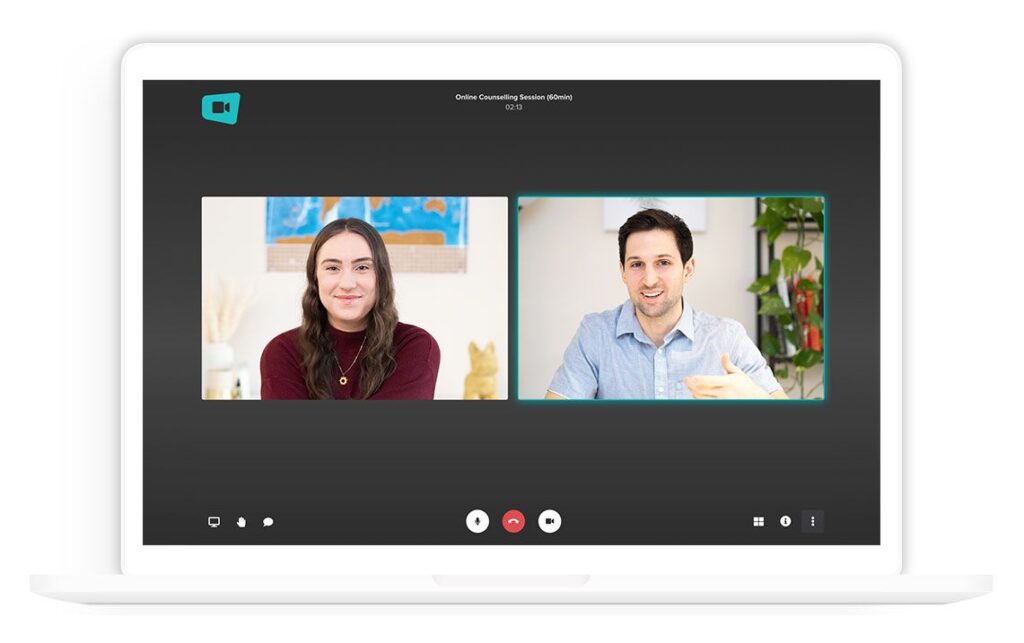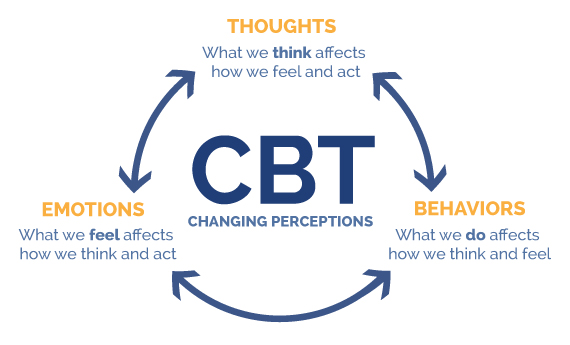Explore effective techniques through counselling for anxiety disorder programs
Explore effective techniques through counselling for anxiety disorder programs
Blog Article
Checking Out Different Techniques in Therapy for Anxiety Condition for Long-term Adjustment
When taking on stress and anxiety disorders, it's important to explore a variety of therapy techniques. Each technique provides unique insights and devices to aid you manage your signs effectively. You might locate that integrating techniques can generate the most effective outcomes. Understanding the nuances of these approaches is key to promoting long-term modification. What happens if the ideal combination could launch a new level of psychological wellness for you?
Understanding Anxiousness Conditions: A Short Overview
Stress and anxiety conditions, which impact countless individuals worldwide, can substantially impact life. You could experience overwhelming sensations of concern or fret that appear irrepressible. These feelings can lead to physical signs like a racing heart, sweating, and even wooziness. Typical sorts of anxiety problems include generalized anxiousness condition, panic attack, and social anxiety condition. Each has one-of-a-kind indications, yet they all share a tendency to disrupt your routine and relationships.Understanding the root triggers of your anxiety is vital. It may originate from genetics, brain chemistry, or life experiences. Acknowledging your triggers can aid you handle your reactions much better. It is essential to keep in mind that you're not the only one in this struggle. Many individuals encounter similar difficulties, and seeking help is a solid step toward sensation better. By discovering anxiousness disorders, you're already on the path to understanding and handling your problem better.
Cognitive-Behavioral Treatment: Challenging Adverse Idea Patterns
In Cognitive-Behavioral Therapy, you'll start by recognizing the negative idea triggers that add to your anxiety. Once you recognize these thoughts, you'll deal with replacing them with more positive alternatives. Together, you'll develop reliable coping methods to aid handle your anxiousness in everyday scenarios.
Determining Negative Idea Triggers

Identifying the details triggers behind your negative ideas can be vital in managing anxiety when you experience minutes of distress. Begin by taking note of circumstances that provoke sensations of fear or fear. Is it a congested room, an approaching due date, or a discussion with particular individuals? Jot down these circumstances in a journal. This will aid you identify patterns in your reasoning. Notice physical feelings that accompany your negative ideas, like an auto racing heart or rigidity in your upper body. By identifying these triggers, you get insight right into what's fueling your stress and anxiety. Comprehending these connections is the very first action in testing those thoughts and eventually regaining control over your emotional actions.
Replacing Thoughts With Positives
Challenging unfavorable idea patterns is an essential step in changing your frame of mind and decreasing anxiety. You may often find on your own caught in cycles of insecurity or catastrophic thinking. As opposed to allowing these ideas dictate your sensations, method changing them with sensible alternatives or positive affirmations. When you believe, "I can not manage this," move it to, "I can take care of obstacles one action at a time." This basic modification can considerably impact your emotional state. Frequently recognizing and countering these unfavorable thoughts helps produce a healthier interior dialogue. Bear in mind, it takes time and initiative, but constantly exercising this strategy can bring about long lasting adjustment, encouraging you to deal with stress and anxiety with renewed self-confidence and resilience.
Structure Coping Strategies Together
Replacing unfavorable ideas is only the start of handling stress and anxiety effectively. To produce enduring adjustment, you need to develop coping strategies that encourage you. Cognitive-Behavioral Therapy (CBT) assists you determine and challenge those unhelpful thought patterns. Together, you and your counselor can explore just how these thoughts impact your feelings and behaviors.Start by creating functional techniques, like journaling or mindfulness exercises, that allow you to face anxiety head-on. When you encounter your concerns slowly, you'll learn to react in different ways.

Mindfulness and Acceptance-Based Approaches: Growing Present-Moment Recognition
As you navigate the intricacies of anxiousness, integrating mindfulness and acceptance-based methods can significantly boost your ability to grow present-moment recognition. By concentrating on the here and currently, you'll discover that you can observe your ideas and feelings without judgment (Counseling services for anxiety). This practice helps you recognize your stress and anxiety without really feeling bewildered by it.Engaging in mindfulness workouts, such as deep breathing, body scans, or guided reflections, allows you to ground yourself in your present experience. Acceptance-based strategies motivate you to welcome your feelings instead than deal with versus them. When you approve your feelings, they shed their power over you.Incorporating these methods into your everyday regimen can transform just how you reply to anxiety. You'll develop resilience and discover to navigate demanding circumstances with greater simplicity. Ultimately, cultivating present-moment recognition lays the foundation for lasting change, empowering you to lead an extra satisfying life
Direct Exposure Therapy: Facing Worries Slowly
Direct exposure therapy assists you confront your anxieties in a gradual way, making it much less overwhelming. You'll discover strategies to encounter anxiety-provoking circumstances action by action, while likewise developing coping approaches to manage your responses. This strategy empowers you to take control and decrease stress and anxiety gradually.
Steady Exposure Methods

When encountering stress and anxiety, slowly facing your anxieties can be an effective means to reclaim control. This strategy, referred to as steady exposure, includes gradually exposing on your own to the scenarios or things that cause your anxiousness. Begin with less challenging circumstances and progressively function your means up to more challenging ones. If you're terrified of public talking, you could begin by talking in front of a mirror, after that advance to sharing thoughts with a pal, and eventually deal with a little team. Each action assists desensitize you to the concern, constructing your confidence over time. Bear in mind, it's necessary to pace on your own and commemorate small victories as you move via this process, reinforcing your capacity to take care of anxiousness effectively.
Structure Coping Strategies
Structure effective coping methods is crucial for handling anxiousness, specifically as you challenge your worries progressively - Counseling services for anxiety. One powerful technique is exposure treatment, where you start by facing your concerns in a regulated way. Start with less frightening circumstances and slowly function your method up to investigate this site more tough situations. This gradual exposure aids desensitize you to anxiety activates, making them much less overwhelming.Incorporate leisure techniques, such as deep breathing or mindfulness, to relax your mind throughout direct exposure. Track your progress, commemorating small triumphes in the process to improve your confidence. Keep in mind, it's alright to take your time; the goal isn't perfection but consistent improvement. By developing these approaches, you'll empower on your own to navigate anxiousness and accept life extra fully
Psychodynamic Therapy: Discovering Origin of Anxiousness
Psychodynamic treatment checks out the unconscious mind, exposing the origin of your anxiousness. By examining your ideas, sensations, and previous experiences, this approach helps you reveal underlying disputes and unresolved issues that may add to your present stress and anxiety. You'll collaborate with a therapist to explore childhood experiences, partnerships, and emotional patterns that shape your responses today.As you acquire insight right into these much deeper layers of your mind, you'll begin to identify just how past occasions influence your existing habits. This understanding can result in catharsis, allowing you to refine emotions you may have suppressed.Through the healing partnership, you can also identify defense reaction that might have established with time, supplying a clearer path useful source to transform. Inevitably, psychodynamic therapy furnishes you with the tools to address your anxiety at its core, promoting long lasting makeover in your psychological health.
Integrative and Holistic Techniques: Integrating Techniques for Greater Efficiency
Integrating different healing strategies can enhance your journey toward taking care of anxiousness more efficiently. By integrating components from cognitive-behavioral therapy, mindfulness practices, and all natural methods, you can produce a tailored approach that addresses your one-of-a-kind requirements. You could use cognitive-behavioral methods to test adverse thought patterns while integrating mindfulness exercises to ground yourself in the existing moment.Additionally, discovering all natural practices such as yoga or reflection can promote relaxation and lower anxiety signs and symptoms. This mix enables you to establish greater self-awareness and resilience.Experimenting with these varied approaches can assist you uncover what reverberates most with you. Bear in mind, it has to do with locating a harmony that works, instead than sticking to a solitary strategy. This integrative technique not just provides immediate relief yet likewise fosters lasting abilities for taking care of anxiousness, encouraging you to recover control over your life.
The Role of Assistance Equipments: Building Strength Through Link
While it could seem that taking care of stress and anxiety is a solitary journey, having a strong support group can play an important duty in your durability. Surrounding on your own with compassionate pals, family, or assistance teams develops a secure room where you can openly share your experiences and sensations. You advise on your own that you're not alone in this struggle.These relationships offer motivation and can offer practical coping methods that have functioned for others when you connect with others. It's additionally a chance to obtain viewpoint; pals can aid you see scenarios in different ways, decreasing feelings of isolation.Moreover, psychological assistance fosters a sense of belonging, which can greatly ease stress and anxiety signs and symptoms. By leaning on your support system, you can construct durability and take on difficulties much more properly. Keep in mind, reaching out for aid signifies toughness, and it can make all the difference in your journey toward handling stress and anxiety.
Frequently Asked Inquiries
What Are the Common Symptoms of Anxiousness Problems?
You may experience uneasyness, fatigue, problem concentrating, irritation, muscle mass tension, and rest disruptions. Physical signs can include rapid heart beat, sweating, and trembling. Recognizing these signs early can aid you look for proper assistance and treatment.
The Length Of Time Does Therapy Usually Last for Anxiety Conditions?
Therapy for anxiety problems typically lasts anywhere from a couple of weeks to numerous months. It truly depends upon your individual needs, progress, and the strategies your specialist uses to help you handle your anxiety effectively.
Can Medication Be Utilized Along With Therapy for Stress and anxiety?
Yes, medication can most definitely be used together with therapy for anxiousness. Combining both go right here approaches frequently boosts therapy efficiency, helping you take care of symptoms while checking out underlying problems with therapy (Counseling services for anxiety). Constantly consult your healthcare company for customized suggestions
Exist Self-Help Strategies for Taking Care Of Stress And Anxiety?
Yes, there are a number of self-help techniques for handling anxiety. You can practice mindfulness, participate in routine exercise, maintain a balanced diet plan, develop a routine, and utilize deep breathing strategies to help in reducing anxiousness symptoms successfully.
Exactly how Do I Know if I Required Professional Aid for Anxiousness?

Report this page